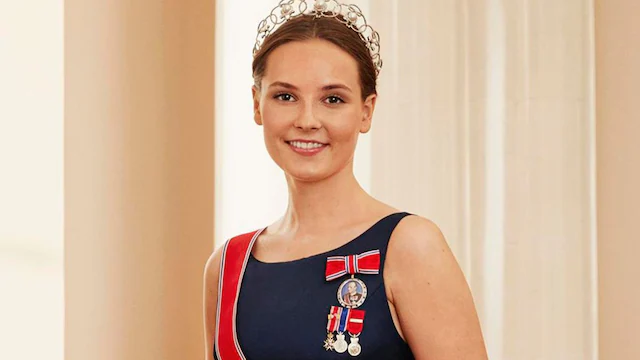In a move that underscores the evolving role of modern royalty, Princess Ingrid Alexandra of Norway has announced a temporary pause in her official royal duties to focus on higher education. The decision reflects a growing trend among young royals worldwide who seek to balance public responsibilities with personal development and academic pursuits.
Princess Ingrid Alexandra, the 20-year-old heir apparent to the Norwegian throne, is widely regarded as a symbol of the nation’s future. Since assuming public duties as a teenager, she has represented Norway at numerous official events and international engagements. However, the royal palace confirmed this week that the princess will temporarily step back from her public role to enroll in university studies, signaling a shift towards prioritizing her education.
This announcement has been met with widespread public support in Norway, where the monarchy maintains strong popular approval but has also adapted to contemporary societal expectations. The palace emphasized that while Princess Ingrid Alexandra will reduce her public appearances, she will continue to be involved in certain royal functions and remain committed to her future role as queen.
The decision highlights several key themes relevant to contemporary monarchies. First, it illustrates the importance of education for young royals preparing to assume leadership roles in constitutional monarchies. A solid academic foundation equips them with the knowledge and skills necessary to navigate complex political and social landscapes. Princess Ingrid Alexandra’s choice to prioritize higher education aligns with this principle and signals a modern approach to royal preparation.
Second, the move reflects a broader trend among European royals who balance tradition with the demands of modern life. Across the continent, younger members of royal families have increasingly sought to pursue university degrees, professional careers, and personal interests before fully embracing their royal obligations. This evolution speaks to the desire of monarchies to remain relevant and relatable in an era of rapid social change.
Key keywords associated with this development include “Princess Ingrid Alexandra,” “Norwegian monarchy,” “royal education,” “modern royalty,” and “constitutional monarchy.” These terms are central to discussions about the future of monarchy and the role of young royals in society.
Experts in royal affairs note that Princess Ingrid Alexandra’s academic hiatus is unlikely to diminish her public profile but rather enhance it. By investing time in education, she sets a positive example for young people in Norway and beyond, demonstrating that leadership requires continuous learning and personal growth.
The palace has not disclosed specific details about the princess’s chosen field of study or the university she plans to attend. However, speculation suggests she may pursue subjects related to political science, international relations, or environmental studies, areas consistent with her known interests and Norway’s policy priorities.
In conclusion, Princess Ingrid Alexandra’s decision to pause her royal duties in favor of higher education marks a significant moment for the Norwegian monarchy. It reflects a modern royal’s commitment to balancing public service with personal development and mirrors a global trend among young royals embracing education as a cornerstone of their future roles. As she embarks on this new chapter, the princess continues to embody the evolving nature of monarchy in the 21st century.



